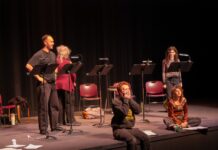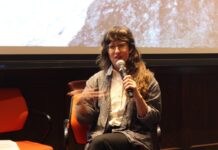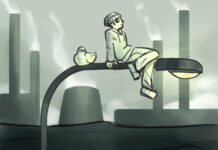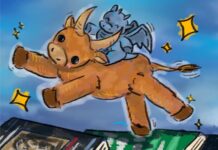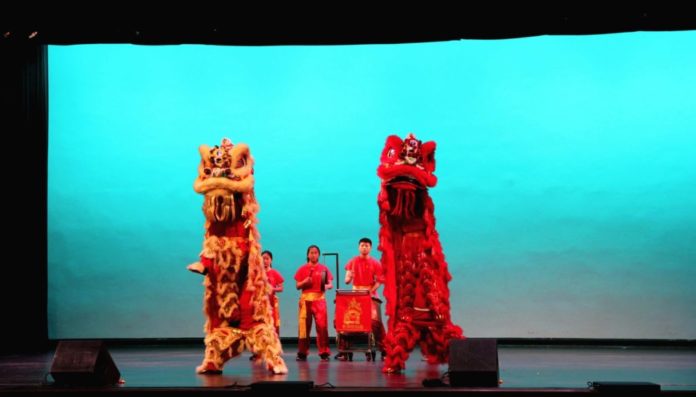
Chinese Students and Scholars Association (CSSA) and Chinese Culture Club (CCC) hosted a Lunar New Year Gala Feb. 9 in celebration of the Chinese New Year, also known as Spring Festival. Guests were served a free dinner of traditional Chinese cuisine catered by Eagle Rock Green Dragon. Afterward, guests were invited inside Thorne Hall for a show featuring performances from Chinese international students at Occidental.
Shannon Xu (first year) is an international student from Shanghai and a member of CSSA. According to Xu, the Lunar New Year is a time for families to be together.
“It’s basically like Christmas, but it’s less religious. We celebrate on Spring Festival eve, and we stay up all night. We have dumplings and lots of food. We have a show occur in our country that was usually guided by the government, but now we have different programs in different cities and provinces,” Xu said.
The gala was hosted by Alex Lin* (first year), Dion Holden (first year), Shannon Xu and Lizzie Hansel (senior). The hosts alternated speaking Mandarin and English throughout the show and expressed their thanks toward the Associated Students of Occidental College (ASOC), International Programs Office (IPO), Diversity and Equity Board (DEB), President’s Office, Dean of Students Office, Residential Education and Housing Services (REHS), South Western Chinese Students and Scholars Association and American studies department for helping make the gala possible. Professor Xiao-huang Yin of the American Studies department also welcomed the audience and explained that this year is the Year of the Golden Pig, which only occurs every 60 years.
“This is the Golden Pig year, which means that everyone will have a wonderful, prosperous and successful year,” Yin said.
According to Zhu, there are 12 zodiacs for the Chinese Spring Festival, and there is a different animal that signifies each year.
“There is a tale that a Chinese god wanted to organize a marathon in which all the animals were involved, but only the first 12 that arrived at the destination could be on the calendar. The first one is a mouse, but we all know mice are pretty small and they don’t really run fast,” Xu said. “But they’re pretty smart, because it climbed on the cow, which is the second one, and it jumped when it approached the finish line.”
According to Xu, on Spring Festival eve there is traditionally a fictional monster that comes out to eat children so they won’t be able to enter the new year. This monster made a stunning appearance in the first act of the evening, a Lion Dance performance by the JC Culture Foundation, a nonprofit organization that performs, promotes and teaches traditional Chinese dance and culture in Los Angeles.
“Parents try to protect their children by putting up red paper in their houses to scare the monster, and we do fireworks. Parents give their children red packets under their beds, so when the monster sees them it won’t eat the children. It’s a way to protect the children,” Xu said. “But now it has turned into a way that parents give their children money, pocket money. We usually can have a lot of money after the Spring Festival.”
The lion dancers wore intricately-embroidered gold and red costumes, which required dancers to work in sync to make the beast move. The lions entered the audience, scaring some of the younger audience members — but CSSA members ensured their safety by feeding the lions red packets at the end of their performance.
Junlica Meng (junior) is an e-board member of CSSA and an international student from Shenzhen, Guangdong. According to Meng, the Chinese New Year is the most important event in China.
“There are lots of celebration that depend on each family, but in general people will have dinner, and then there is the annual Chinese New Year Gala that families will watch together,” Meng said. “People do homemade dumplings, and people in the south do glue pudding. Some people put coins, sugar, peanuts or other things inside the dumplings when they make them. Coins mean you will get more money in the new year. Sugar means you will be very happy in the new year,”
According to Meng, the Lunar New Year is a festival celebrated in China and other Asian countries that begins on the first new moon of their lunisolar calendar and ends on the full moon. People wear new clothes and shoes in order to get rid of the last year and welcome the new year.
“As a kid, what I enjoyed most about it was the pocket money. Also, a good dinner with your parents and other family members. I liked playing firecrackers and getting new clothes and shoes from my parents,” Meng said.
Xu and Meng both performed in the traditional dance “The Nation of Greatness and Courtesy.” The gala also featured the UCLA Music of China Ensemble, who performed with traditional Chinese instruments. Between performances, hosts drew lottery numbers for the gala’s first, second and third place prizes. The first place winner took home a pair of Beats wireless headphones.
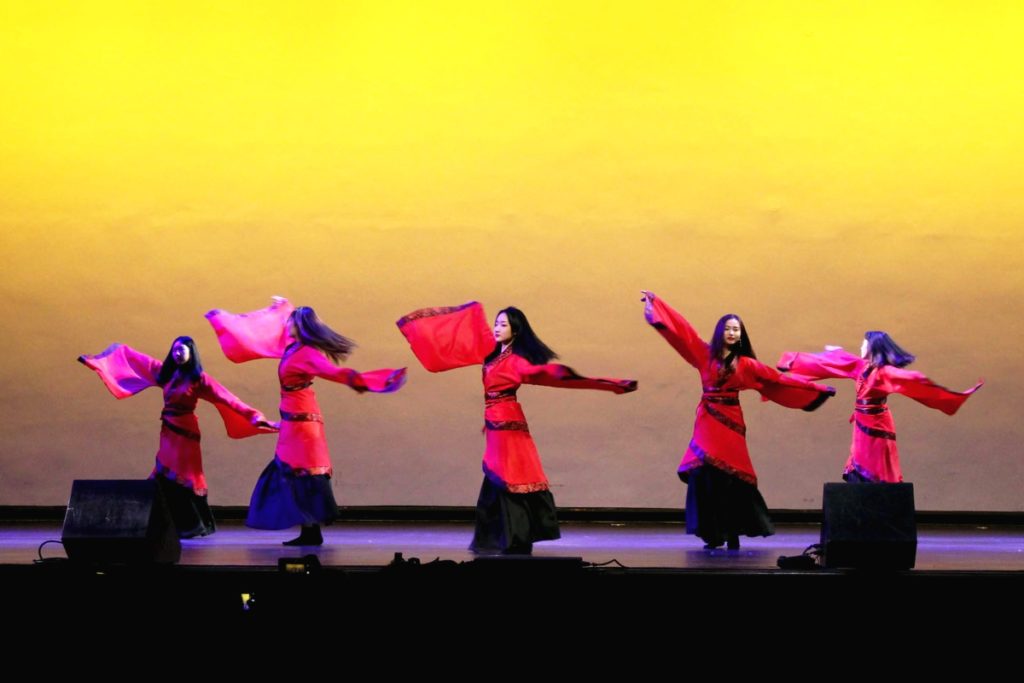
Ryan Zhu (senior), the president of CSSA, performed his own rendition of Ed Sheeran’s “Perfect Symphony.” According to Zhu, they decided to have the celebration during the weekend, despite the date of the New Year occurring during week, so that more students would be able to attend the event.
“A majority of international students at Oxy come from China. It’s at least more than 60 percent. I think it’s really important to create a home-like celebration to make our fellow Chinese students feel like they’re at home,” Zhu said.
*Alex Lin is a staff writer for The Occidental.
![]()















